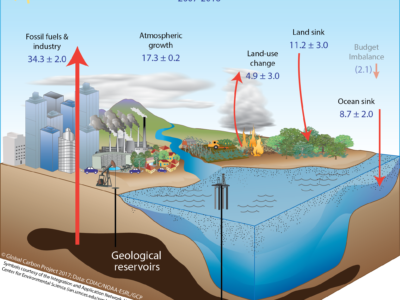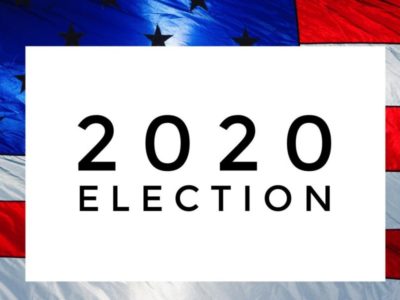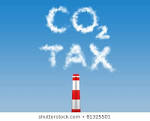Climate Policy
Guest Blogger Michael Panfil: Supreme Court Declines to Hear New York and Illinois Clean Energy Cases Challenging Zero Emission Credits
Cert. Denials Have Significant Implications for Environment, Human Health, and Clean Energy
States are on the leading edge in crafting pathbreaking climate and clean energy policy. They rely on longstanding authority to do so to further their citizens’ welfare and wellbeing. That bedrock authority recently received important reaffirmation from the Supreme Court, which last month declined petitions for review in two cases with important implications for power …
CONTINUE READINGIn Defense of Live Carbon
Why Stopping Deforestation May be the Hardest and Most Important Part of the Climate Change Challenge
When contemplating the enormous challenge of global climate change, it is sometimes helpful to think about a simple model of the global carbon budget (see figure below). These admittedly reductionist schematics distinguish between sources, sinks, and reservoirs. Fossil hydrocarbons from the geological reservoir–call this dead carbon—are extracted and burned to generate energy, emitting vast amounts …
Continue reading “In Defense of Live Carbon”
CONTINUE READINGClimate Change & the Democratic Candidates
The candidates are all in favor of climate action but there are significant variations in their stances.
It’s hard to keep track of the twenty or so Democrats who are in the running for the 2020 presidential nomination. The differences between them on climate policy are minor compared with the gulf between them and President Trump. All of them support the Paris Agreement, unlike Trump. And all of them vow to restore …
Continue reading “Climate Change & the Democratic Candidates”
CONTINUE READINGHappy Tax Day!
It’s the perfect time to talk about a carbon tax.
Justice Oliver Wendell Holmes once said that taxes are the prices we pay for a civilized society. A carbon tax, if we ever get one, might turn out to be the price we pay for a sustainable planet. I’m not wedded to it as a tool for cutting carbon, and I don’t think it would …
Continue reading “Happy Tax Day!”
CONTINUE READINGBottoms-Up! An Emerging New Governance System (2)
Bottom-up appraches aren’t just fallbacks when top-down fails. They have their own strengths.
There are some obvious advantages to top-down climate police, whereby a uniform global climate policy is adopted at the global level and then seamlessly implemented by nations, or whereby a similar process takes place at the national level. Of course, this top-down model requires first global agreement on a uniform policy and then effective …
Continue reading “Bottoms-Up! An Emerging New Governance System (2)”
CONTINUE READINGBottoms-Up! An Emerging New Governance System (1)
In the past twenty years, climate policy has taken an unexpected form. Here’s what to expect.
There’s been a major change in the way environmental governance works, which is most obvious in terms of climate policy. We initially expected climate policy to be set at the international level, followed by incorporation into national legislation, and implementation by agencies and lower levels of government like states. But this top-down governance scheme isn’t …
Continue reading “Bottoms-Up! An Emerging New Governance System (1)”
CONTINUE READINGAfter Trump
Suppose we get a pro-climate-action unified government. What then?
Someday, the stars will surely come into alignment and Congress will be able to pass climate legislation. A national cap-and-trade scheme or a carbon tax would be definite possibilities. But let’s suppose they aren’t politically feasible, maybe because of opposition from progressive on equity grounds, or maybe because for some reason the public rejects them. …
Continue reading “After Trump”
CONTINUE READINGClimate policy and horcruxes
What Harry Potter might have to teach us about making climate policy more resilient to political shifts
As the most recent report from the Intergovernmental Panel on Climate Change makes clear, the negative impacts of climate change are now upon us, and we have a very limited amount of time to decarbonize global economies in order to reduce the risk of catastrophic impacts from climate change, impacts that might begin as soon …
Continue reading “Climate policy and horcruxes”
CONTINUE READINGThe possibilities of a Green New Deal
Proposal for massive government investment in decarbonization of the economy could have long-term political benefits, if it’s done right
The new House Democratic majority takes over this week. In the period between the midterm elections and now, one major issue that has been discussed is the path forward for the Democrats on climate policy. Led by freshman Representative Alexandria Ocasio-Cortez, activists have called for the new majority to set up a special House committee …
Continue reading “The possibilities of a Green New Deal”
CONTINUE READINGThe Power of the Purse
House Democrats have power to use appropriations process to stop Trump Administration environmental rollbacks
Dan has already posted about some of the big deregulatory steps the Trump Administration is likely to take in the next year. But the new Democratic majority in the House could have something to say about those steps, if they wanted to. Democrats will have even more leverage over spending bills than they had in …
Continue reading “The Power of the Purse”
CONTINUE READING









